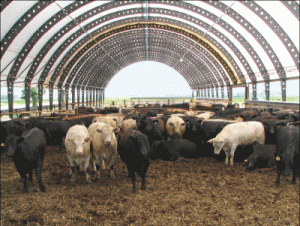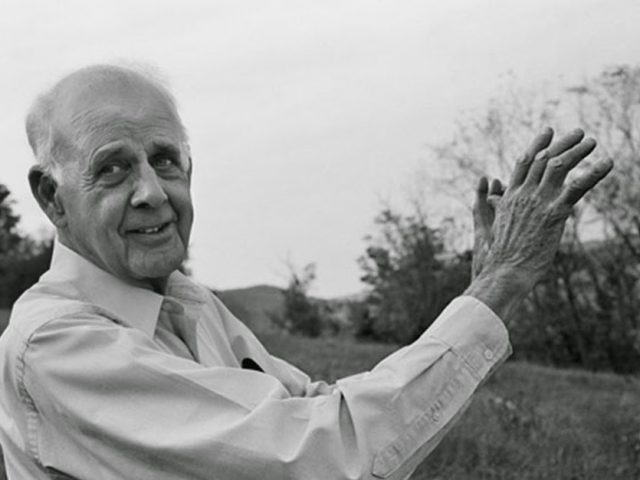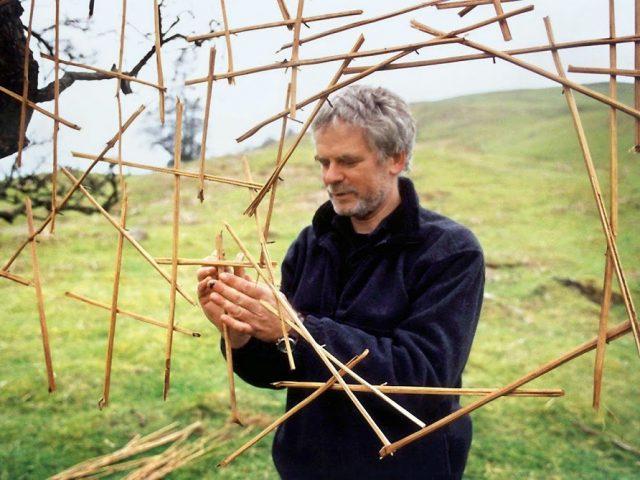Not too far outside Rochester, in clear view as we drive past on the highway, is a commercial diary enterprise. It produces a prodigious amount of milk. What is missing is the pastoral scene that usually comes to mind when we think of a dairy farm. There are no dairy cows grazing in a green pasture ranging over slightly rolling hills. The reason is that in this factory the cows never leave their stalls. Day and night, week after week, the cows stand in long lines, each tethered to a stall that they will leave only when they die. Their food is brought to them with an efficiency that could only be developed by engineers that know to fine tune machinery to never miss a beat. The stalls are kept clean by more technology, numerous men in huge tractors and trucks circling the long barns in a steady mechanical ballet. The cows don’t live as long as those that are allowed to live more normally. But the economics of production take that into account—in this sort of dairy factory, the shortened lives of the cows is just part of the cost of doing business. The milk that ends up in grocery stores is saturated with antibiotics, needed to keep the cattle from illness because they are crammed into such close quarters. Similar commercial farm enterprises raise hogs, chickens, sheep, and turkeys in similar conditions.
Huge feedlots fatten beef cattle on corn in crowded pens devoid of plants and thick with excrement. We passed numerous feedlots this autumn as we drove between Minnesota and Colorado this autumn, each time praying the wind would carry the stench away from us. You can’t smell the antibiotics, but it’s easy to understand why more are needed at this stage of production.
I realize there are arguments in favor of this approach to producing food. Cattle fattened on corn yield marbled meat that most people prefer in taste. More important, the systematic application of engineering standards of efficiency allows fewer people to produce much larger quantities of meat and milk. Advances in technology allow new approaches to farming that increase production at lower cost. In a world like ours, still haunted by hunger, such things are not insignificant. And with the recent turmoil in the world of finance, I suspect that arguments involving higher food costs and increased governmental regulation will not be applauded by a lot of good people.
Still, I find these developments in commercial farming to be an occasion for grief. I am not a vegetarian, but as a Christian I am committed to the biblical teaching that cows, chickens, pigs, sheep, and turkeys are my fellow creatures in a world God has made and sustains by his word. The cultural mandate of Genesis 1:28—a mandate we live under as we walk our days before the face of the Creator—is to cultivate God’s good earth. To care for it tenderly as his stewards, for it remains his. To mistreat it is to mistreat him and to be dismissive of our calling to be faithful. To mistreat animals is to demean their Maker.
Deciding to eat locally grown, organically produced meat, egg, and dairy products has increased our food costs a little. I do not regret that decision. I realize that every family may not be able to afford to do the same. So be it. I am not interested in promoting new legalisms. I also realize that trying to change commercial farming will likely involve governmental action, and that is not always a completely happy prospect. Nor do I wish to anthropomorphize the fate of farm animals. As creatures we are fellow creatures; as human beings, unlike them we are made in God’s image. That’s a real difference, and it matters.
I do want to argue, however, that Christians take creation seriously. And that includes treating our fellow creatures with the dignity and care that is intrinsic to their natures as part of the gloriously interconnected world that God called into existence. Though ruined by brokenness it need not include mistreating fellow creatures because of greed.
One place to begin is to read two books, one fairly old, the other new: Pollution and the Death of Man (1970) by Francis Schaeffer, and The Omnivore’s Dilemma (2007) by Michael Pollan. I recommend them both.
![]()






Thanks Denis. I try to avoid thinking too much about this topic because I’m afraid I might actually have to act on my conscience! Now you’ve gone and written just a brief but excellent piece that’s going to make me think about our grocery habits!
Seriously, a wonderful and provocative post.
Thanks for the kind words, Ron.
I think this topic (and related concerns) can become so complex that people have good reason to shy away from dealing with it. Better we just do little things, as we can, in an effort to be faithful.
I saw on the Ransom calendar that you and Margie are here in St. Louis for this weekend. Hope you have a great time. We need to get you to come to Old Orchard Church sometime. I believe you know quite a few people there!
For my Christian Ethics class with Dr. Bradley I wrote a book review of The Omnivore's Dilemma. Loved every second of writing it and I continue to teach about it when we get to our agriculture unit in my AP Human Geography class. This is an important issue. I don't really have any solutions but I do believe that it is an issue that the gospel speaks to and believe that the discussion should continue throughout the Christian community.. Thanks for posting this Denis.
Scott
Scott:
I'm increasingly convinced that my task or calling in life is not to find "solutions" but to be faithful. Solutions call for both expertise I do not have, and a position of influence and power I do not possess. Someone else will have to faithful at that point. But I can at try to be faithful at those points where these huge issues intersect with my life.
Thanks for your faithfulness in teaching others.
Denis